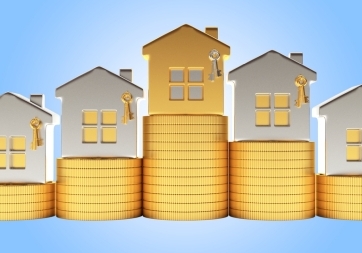House prices have gone up by 4.9% over the last year but are continuing to show signs of steadying the latest Office for National Statistics (ONS) figures have revealed.
House prices have gone up by 4.9% over the last year but are continuing to show signs of steadying the latest Office for National Statistics (ONS) figures have revealed.
 Data for January 2018 recorded a 0.3% drop in prices over the month, while the annual rise is down on the 5% recorded by the ONS in December 2017.
Data for January 2018 recorded a 0.3% drop in prices over the month, while the annual rise is down on the 5% recorded by the ONS in December 2017.
It means the average price of a property in the UK now stands at £225,621.
The figures came as it was announced consumer price inflation (CPI) had fallen from 3% to 2.7%, which experts say will take pressure off the Bank of England to increase interest rates and will be welcomed by households.
Jonathan Samuels, CEO of property lender, Octane Capital, said considering the ‘serious headwinds’ felt by the property market over the last two years caused by Brexit and the high cost of living, the annual growth figure in house prices could be a lot worse.
And he thought news that inflation had come down could be positive for the property market going forward.
He said: “Property transactions understandably suffer when households feel the squeeze but if the cost of living continues to fall prices, in the current cycle, may have bottomed out.”
Industry professionals also said the ONS house price figures would come as good news to first-time buyers.
Danny Belton, head of lender relationships at Legal & General Mortgage Club, said: “2018 has started on a strong a footing. Annual house price growth is clearly rising at steadier levels than in previous years, with wage and property inflation now more aligned.
“Couple this with the great mortgage deals that remain on the market and first-time buyers should have a better chance of stepping onto the property ladder.”
But there were also concerns that, while prices were slowing in general, there were still problems with affordability and supply in many areas of the country.
Jeremy Leaf, north London estate agent former residential chairman of the Royal Institution of Chartered Surveyors (RICS) said low interest rates and shortage of stock plus squeezed affordability and Brexit uncertainty had caused house price volatility in recent months.
He added: “No region reflects this pattern more than London, which is showing again that price rises are lagging behind most of the rest of the country, mainly due to previous overheating and now availability of more stock.
“Successful sellers are the ones who are recognising the new market realities. Property needs to stand out one way or another to gain attention.”














